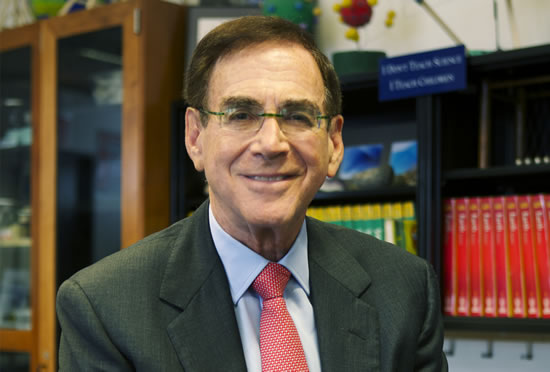GUEST EDITORIAL
A History Lesson
By Dr. Stephen Spahn, Chancellor Of Dwight School

Dr. Stephen Spahn
As seniors graduate and educators take stock of another academic year, I am inclined to take a longer look in the rearview mirror — well beyond the last few semesters to the beginning of my career in education for a perspective on how far we have all traveled and a primer on what has stood the test of time.
When I became a young headmaster in the 1960s, it was a particularly tumultuous time — a counterculture decade marked by activism and the Vietnam War. Students reflected this era fully; they were front and center in anti-war and civil rights movements and also the ones who were drafted. Against this backdrop, I dove head first into my work and learned a fundamental lesson that has shaped my educational philosophy ever since: When you help a young person discover his/her passion or talent and nurture that uniquely personal interest or set of skills, you unlock the door to all other learning. Oftentimes during the 60s, what drove students was a call to move away from the conformity that characterized the 1950s. As we encouraged students to find their own passions, we saw how they were transformed into great learners and leaders.
During the 1970s and 80s, as the global economy continued to grow and markets became more interdependent, education had to adapt to the new order. The International Baccalaureate answered the call. The IB, which was born in 1968, began to grow and take hold, offering a vigorous academic curriculum designed to cross — and transcend — national boundaries. IB schools envisioned a world in which students everywhere were equipped with the communication and critical thinking skills needed to bridge cultures and countries to collaborate and solve problems on a global scale. The IB has since expanded to meet this objective and today includes 4,335 public, private, and parochial schools worldwide.
The Digital Age rapidly accelerated the need for educators to prepare students to be global citizens and succeed in the competitive global marketplace, reinforcing the benefits of an IB education. Technology also transformed our markets: The McKinsey Global Institute estimates that while merchandise trade added approximately $2.7 trillion to the global economy in 2014, international data flow added $2.8 trillion that same year.
What does this mean for educators? We have to equip students with the ability to gather, assess, and interpret big data across disciplines — skills that we could never have envisioned 50 years ago. Yesterday’s art studios, science labs, and classrooms have been digitized. Today’s learning spaces must continue to evolve into collaborative information-sharing hubs.
As educational infrastructures and facilities keep pace with new media and we build ever-higher-tech schools of the future, we must remind ourselves of the second fundamental lesson that I learned at the beginning of my career: There is simply no substitute for great teachers. Excellent, caring teachers who put the student first are the bedrock of an excellent education.#
Chancellor Stephen Spahn is the longest-serving head of school in New York City. Dwight School is a founding International Baccalaureate Prek-12 school in the United States and the first to offer the comprehensive IB curriculum in the Americas.
